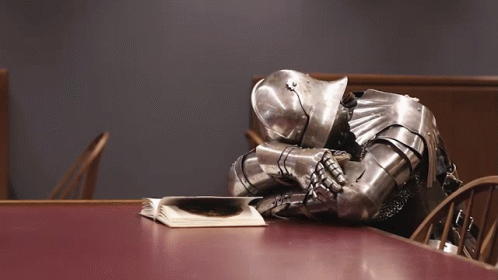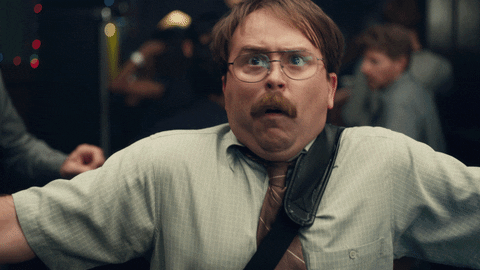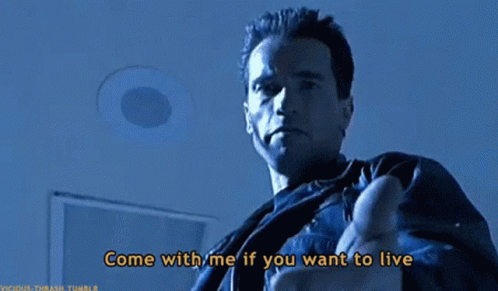So, what do you think about combat?
Originally coming from other systems where combat was almost always crippling, I was initially skeptical of the combat in D&D.
Combat is D&D is awesome (if you're not a squishy level 1), and the sheer range of abilities, feats, manurers (and more) that are on offer provide a huge range of actions you can perform.
The spellcasters have great options to make them more dynamic and deadly, the melee folks can crunch foes in high numbers, and the classes in the middle offer a great level of flexibility for you.
However, as combat gets harder, and your level climbs higher, combat can sometimes come the only thing in a session (or two). When does this become too much?
I have mentioned parts of this subject in the Keeping Combat Engaging post on this blog - but wanted to specifically focus on when to know when combat is just too long, and potentially boring.
Previously, how to have combat fun and adding variety to it is key to having a great session, and can even make longer encounters still bearable. However, even spicing up combat eventually gets stale as your adventuring party continues to lose resources and your real players get tired as the game goes on.
The Signs
I find in many games (but more in D&D due to combat being a core feature of the game) that players can begin getting bored of combat if it's over a prolonged period. This could be 2 hours of fighting, a full session, or multiple sessions for one fight.
So what are the signs for this? I find common ones can be
- not paying attention to what's happening
- frequently not knowing what to do (making combat last even longer). Although I would say this can happen if a player in new to the game or their class etc.
- becoming obviously less invested in the sequence ("I'm not sure, I'll just hit them...")
- choosing out-of-character, risky options in the hopes to finish the sequence asap.
These are just a few and are maybe the most obvious, but noticing when this is happening is a great que to pick up for you as a GM. These clues can give you great information and can inform how you may run a combat sequence for the group differently next time. It's also important to know that one group may like long combats vs others, which means some changes might not always work with every group.
The Fix?
As mentioned, not every group likes the same things, so it's worth trying to remain flexible for your group.
I often keep combat broken into one session at most in length. I don't particularly enjoy lengthy combat as a player, and as a GM I frequently feel combat can easily become a drag after a couple hours if you're not careful. This doesn't mean that long combats aren't still fun, but I am also aware that most of my groups play in the evenings, and after a few hours we are into the wee hours of the morning. It doesn't matter how good my combat is, if we are all physically tired, it will become more of a job than a game. Now, this isn't a problem for most games I have played, but for D&D there much higher chance combat lasts thing long. Kult and Call of Cthulhu are particularly lethal, so combat is generally quick. But D&D, especially at the higher levels I am running campaigns, for now, often requires a who session depending on what the party is doing.
So how do I make this happen?
Strategic advantage or an problem's Achilles Heel
Many times, there may be a strategic advantage available to the players if they have explored and investigated things. I treat fights like puzzles, so if players do their research they may find out a tactic they can leverage to tips the scales their way. Such as knowing when and where the enemy will be or knowing that the captain will be hiding at X location, and capturing him may resolve the fight before it even happens. In addition to this, maybe enemies a group may encounter may also have a weakness. Lethal or non-lethal to the enemy, players could use the enemy's weakness to either deal additional damage or give them time to escape with their lives.
If a fight is dragging on, the weakness may become more apparent. In a recent game, I had a creature being weak to fire but shielded by organic armour. The party discovered that bludgeoning damage would break the armour into bits, and with enough damage, they could get through the armour and attack the creature's insides - finally dealing damage to it. The players sussed this one out by tricking some robbers into going in to investigate first, who then got into a fight. With the players observing, they saw the bludgeoning damage break the armour first hand, therefore learned how to begin to deal damage. This may seem small, but my players often enjoy these unique details and look out for them in their encounters. Discovering secrets is part of their puzzle, and their reward is to get a one up on the enemy. Altnertively, if the the party didn't learn this and fought 2 hours without discovering the secret, I would be dropping bigger hints so they knew. The end result would be the same and hopefully they would feel like they discovered the secret themselves. Your delivery as GM is key to making players feel like they solved all the issues (even if they needed a small helping hand!).
A different example from a Cthulhu game was that the main creature was afraid of light - its biggest weakness. Through significant studying, players connected the dots from physical evidence left behind by previous explorers who were killed by the creature, the lore they learned, and the recorded sightings of the beast and came to the conclusion that bright light scared it. During their right with it, they could leverage light into their combat to give them a significant advantage against the creature.
This is one of the biggest ways I speed combat up, but in a way that keeps the players in the narrative.
Phased or sequenced delivery
Some games may require something bigger; a large scale fight, a boss encounter, a siege, survival. The higher level players are, the more likely a monumental event may happen. Massive events deserve massive spectacles and shouldn't be rushed for the sake of time. This is where I will combine methods mentioned easier and would also consider having multiple stages to a game.
For example, a boss battle may have 2 or 3 phases, where the boss can fight players in a "normal" form before bursting into a "monstrous" form once their hit points are reduced a certain amount. This is very easy to manage as a GM - just have two stat blocks! Great examples of this type of fight can be seen everywhere - Bloodborne used this formula in many of their fights (and was even reflected in player weapons). The closest example from Bloodborne is Father Gascoigne, the blood drunk hunter who became a monster. His first form is a human hunter, and the second is his beast mode.
Phases can also relate to things other than the NPCs players are fighting. An arena may fall apart, leaving players in dangerous ground, or stuck surrounded by the enemy. Maybe the arena breaking apart reveals high ground for refuge or escape. The circumstances are up to you, and as long as they make narrative sense, the players will not question anything you throw at them!
Pausing for breath!
Breaking combat into these phased stages (particularly for a multi-staged fight like a siege) can offer small breaks in combat to let players collect themselves. A battle with an army may offer a pause before the dragon shows up (allowing players for a short rest) A group of crazed villagers chase the "outsider" players around the town, and the players have hidden from them. They may have the night to collect themselves by healing and recovering sanity. If you have a large sequence of event, its always worth considering how you can reward players getting through key stages by offering small breaks to allow for some character development, RP, or healing.
Final thoughts
You'll figure out your own methods the more games you do. If you find your combat taking too long in D&D, some of the info above might be of use. Even in higher level campaigns, many fights last less than a full night, with bigger ones being reserved for special encounters. This keeps everybody engaged in the fights instead of playing with their minis. It also means players can level up faster, which is a good motivator for keeping players engaged!
The last thing I'll mention is that it may be worth playing with some home-brew rules for critical hits. These can make player critical much more powerful, more dramatic, and more rewarding - however, bear in mind you should deal the same output too for that extra risk! (if that's your thing).
So what do you think? Do you agree with anything above? Let us know with your comments, and have fun trying out anything new you might have learned!
-JT





Comments
Post a Comment
Thanks for leaving a comment!